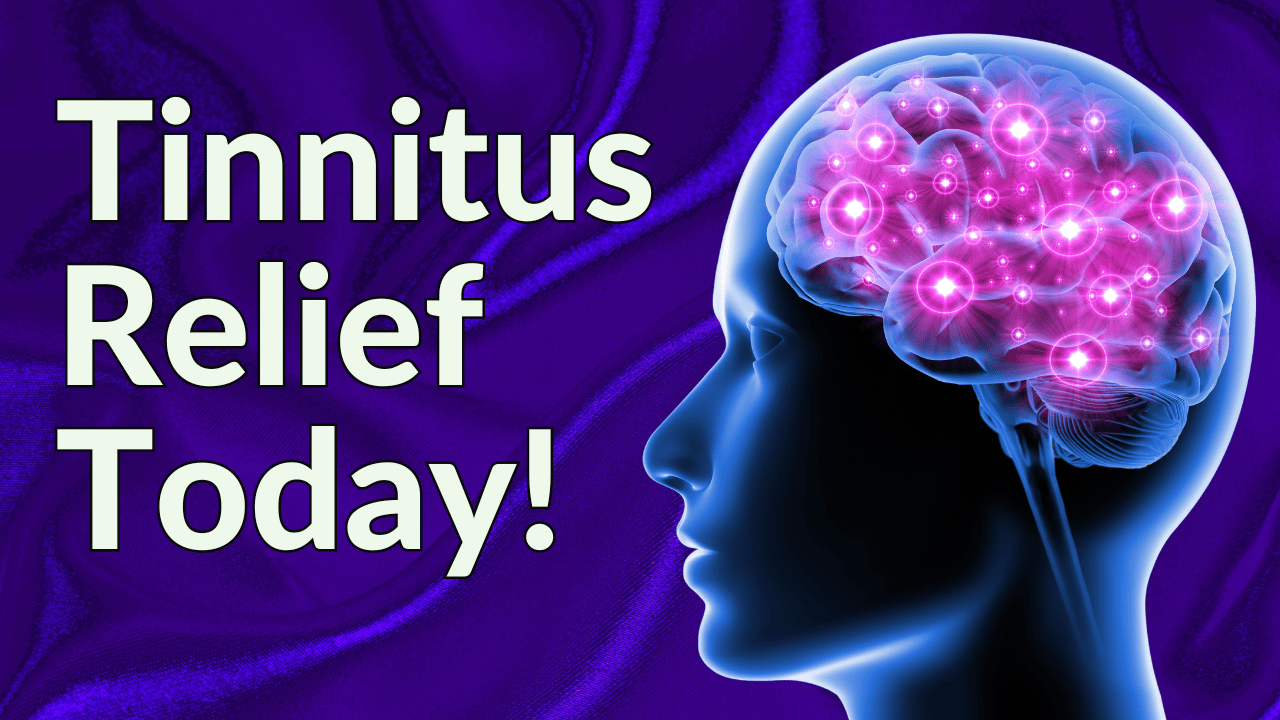If you’ve been dealing with chronic tinnitus symptoms, you’ve probably come across the advice to practice mindfulness. Mindfulness is a relaxation technique that allows you to focus on the present moment while acknowledging your feelings, sensations, and surroundings. This may seem counterintuitive, since chronic tinnitus can consume your thoughts, but you can learn to notice the ringing in your ears and allow it to pass without bothering or distracting you. There are multiple ways to practice mindfulness – meditation, deep breathing, exercise, music, journaling, and more – and whichever method you choose, you can learn to let go.
What Is Tinnitus?
Tinnitus (defined as the perception of sound when there is no external source) varies greatly from person to person – and even from day to day.
"Treble Health helped me reduce my tinnitus by about 80%, and now I can live my life again!"


"Treble Health helped me reduce my tinnitus by about 80%, and now I can live my life again!"
– Steve D.
Book a free consultation to learn which Treble Health solution is right for you. Join Steve and thousands more who have found lasting tinnitus relief.
Most people describe subjective tinnitus as a ringing in their ears or a buzzing, humming, chirping, or whooshing that nobody else can hear. With the exception of objective tinnitus or pulsatile tinnitus, which is a rare condition in which tinnitus sounds are synchronized to your heartbeat and may be heard by others, these sounds are “all in your head.” You may perceive tinnitus in one ear or both, and the loudness, pitch, and emotional burden of tinnitus is different for everyone.
For some chronic tinnitus patients, these symptoms can impact their ability to enjoy daily life. Insomnia, anxiety, depression, stress, and difficulty focusing are common among patients suffering from severe tinnitus, and this can greatly impact quality of life.
Causes Of Tinnitus
Tinnitus is most often related to hearing loss and in fact, as many as 90% of people with hearing loss also experience chronic tinnitus. This may be due to age-related hearing loss (presbycusis), loud noise exposure, sudden sensorineural hearing loss, or other causes. Illness, infection, earwax blockages, head injury, and medication interactions may also cause tinnitus. In some cases, tinnitus doesn’t have a known cause and may be related to stress or chronic pain.
Tinnitus Management
There are different management techniques that can help ease bothersome tinnitus, and it’s always best to start by addressing any known underlying causes. Tinnitus relief is possible if you are evaluated by the appropriate healthcare professionals, and establish a management plan that works for you.
Treatments can include hearing aids, cochlear implants, sound therapy, tinnitus retraining therapy (TRT), cognitive behavioral therapy (CBT), lifestyle modifications, alternative medicine, and mindfulness. You and your audiologist can explore the techniques that work best for you and fit your lifestyle.
Understanding The Impact Of Tinnitus On The Mind



Some symptoms and causes of tinnitus may seem outwardly severe, so it’s natural to wonder if your chronic tinnitus qualifies as “bothersome.” The real question is not how severe your physical symptoms are, but rather if tinnitus is impacting your life. Consider your thoughts and perceptions surrounding tinnitus. It’s this response, not the level of cochlear or auditory damage that determines whether your tinnitus is bothersome or not.
People with non-bothersome tinnitus typically hear the sounds of tinnitus, but it does not cause frustration, anxiety, stress, or other distress. People who experience bothersome tinnitus may have a more emotional response and are keenly aware of their symptoms.
Retraining Thoughts, Mindfulness, And Tinnitus Habituation
You can always change your mind. The brain, and therefore the mind are plastic, meaning that with experience, training, and adaptation, actual structure and neural firing in your brain can change over time. This process, called neuroplasticity, is key to learning and effectively rewiring the brain.



Using mindfulness techniques like meditation can help your brain habituate to the constant tinnitus signals and stop yourself from reacting to it as dangerous or problematic. For our own survival, the human brain is always on alert for danger. If, on a conscious or subconscious level, your mind has not determined whether the tinnitus stimulus is dangerous or not, you may experience a fight-or-flight reaction. This can lead to worsening stress and negative emotional symptoms.
Mindfulness based approaches have been shown to help reduce the intensity of tinnitus and improve the emotional and mental symptoms as well. Making an effort to include mindfulness into your management plan can help you tune out from your tinnitus. You can learn to allow the sound to exist without demanding your attention.
Mindfulness-Based Interventions For Treating Tinnitus
Mindfulness refers to a wide range of techniques. The two most popular mindfulness-based programs are mindfulness-based stress reduction (MBSR) and mindfulness-based cognitive therapy (MBCT).
MBCT incorporates mindfulness exercises with aspects of cognitive behavioral therapy (CBT). The cognitive behavioral component seeks to shift negative thought patterns and develop a healthier outlook. This is used not only for tinnitus, but for other emotionally distressing situations or conditions as well. Similarly, MBSR uses mindfulness exercises as well as body awareness and physical exercises like yoga.
The goal of mindfulness-based interventions is to teach tinnitus sufferers to develop a better relationship with thoughts, feelings, body sensations and the relationship with distress caused by the tinnitus.
Research Exploring Mindfulness As A Treatment for Tinnitus



From tinnitus habituation to physical exercise, research shows that the positive psychological impact of mindfulness can be tremendous.
The Effect Of Mindfulness-Based Interventions On Tinnitus Distress: A Systematic Review
This study explored the evidence of the mindfulness-based interventions on tinnitus distress, anxiety, and depression in tinnitus patients.
Researchers discovered two randomized controlled trials showed a statistically significant decrease in tinnitus distress after practicing mindfulness, as compared to the control group who did not practice mindfulness. Six of seven studies included in the review showed a statistically significant decrease in tinnitus distress scores directly after mindfulness therapy. Another trial showed an improvement in depression symptoms after practicing mindfulness.
Since these trials explored the improvement in tinnitus distress immediately after mindfulness-based interventions, there are no conclusions about long-term effects or sustained benefit.
Mindfulness-Based CBT As A Treatment For Chronic Tinnitus: A Randomized Controlled Trial
This study funded by the British Tinnitus Association explored mindfulness-based cognitive therapy and uncovered clear evidence that it is an effective treatment for tinnitus. The study investigated two types of mindfulness-based cognitive therapy – relaxation training and mindfulness meditation – and found that they were both effective in treating chronic tinnitus. Mindfulness meditation was more effective at reducing perceived tinnitus severity and emotional symptoms like anxiety and depression. Furthermore, researchers used an approach that could be replicated and widely shared with others for tinnitus management.
The Effects Of Yoga In Patients Suffering From Subjective Tinnitus
Yoga is best known as a low-impact exercise for improving flexibility, but it has a long list of benefits including reducing anxiety and stress while improving overall quality of life. In a small study of people with chronic subjective tinnitus, weekly yoga classes that include breathing exercises and meditation were shown to reduce both tinnitus severity and overall stress.
Mindful Activities That Can Help With Tinnitus
The most important mindfulness activity you can do is educating yourself. Simply taking the time to understand chronic tinnitus can relieve a significant amount of stress for many people – the better you can understand the why and how of your tinnitus condition the more likely you are to experience less flight or flight reaction to the perception of tinnitus.
Consider adding mindful activities to your routine, both for tinnitus relief and for general wellness:
- Meditation. Clearing your mind, either through mindfulness, movement, spiritual awareness, or other focused techniques can be extremely beneficial for staying in the present moment and finding peace.
- Exercise. Staying physically active is great for your overall health. Healthy exercise can also support health and reduce blood pressure, which may trigger tinnitus.
- Yoga. Yoga can include breath work, meditation, relaxation techniques, and poses that improve circulation.
- Tai chi. Tai chi is an exercise that uses slow, focused movement to improve balance and physical strength. These movements can ease tension, which can in turn lessen tinnitus.
- Deep breathing exercises. Controlling your breath is an excellent stress reduction and mindfulness approach that anyone can do at any time.
- Therapy. For many people, seeking help from a professional therapist can be an excellent way to learn coping techniques for tinnitus and many other issues.
- Reading. The distraction of a good book is great for keeping yourself grounded and your mind sharp.
- Journaling. The act of writing down your thoughts and feelings can help you track your symptoms, practice gratitude, and focus on celebrating small victories each day.
Mindfulness-based tinnitus stress reduction techniques vary nearly as much as tinnitus symptoms themselves. For many tinnitus sufferers, including those living with chronic pain, relaxation therapy can be extremely beneficial. Consider the ways you can shift the emotional impact of tinnitus – not just the sounds you hear – and you may discover that you have the power to retrain your brain and find tinnitus relief.
Next Step: Book Free Consultation
- 75% of patients reduced their tinnitus within three months after following our recommendations.
- "I feel like Treble Health literally gave me my life back." - Randy S. (verified customer)
- Join thousands of people who have reduced their tinnitus after scheduling a free consultation.




















